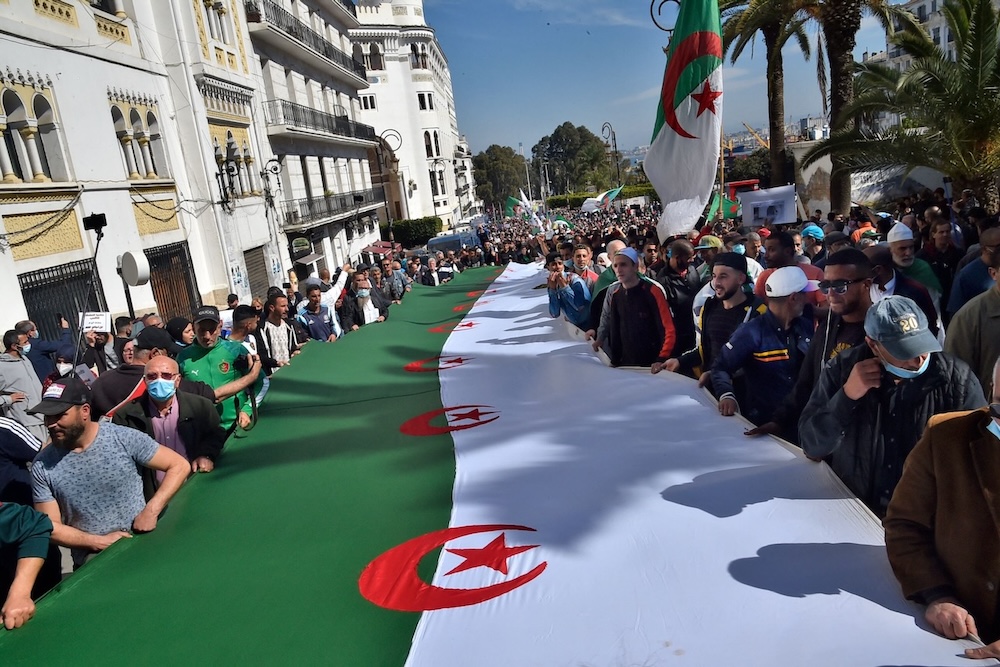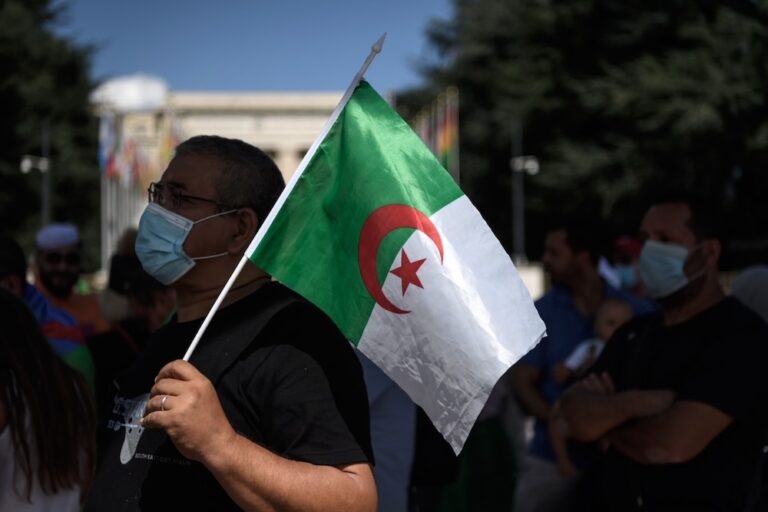Mohamed Tadjadit's sentencing underscores Algeria's ongoing repression of dissent, with activists facing severe penalties for exercising their right to free expression and calling for political change.
This statement was originally published on cihrs.org on 17 April 2025.
On the day of his appeal trial, the Cairo Institute for Human Rights Studies (CIHRS) calls on Algerian authorities to release and end the judicial harassment of Mohamed Tadjadit, sentenced to five years in prison on 20 January 2025; the poet and activist has been in and out of prison and subjected to judicial intimidation since 2019. His latest conviction stems solely from his exercise of the right to free expression; specifically for his promotion on social media of the hashtag “#ManishRadhi” (I am not satisfied), which gained traction in late December 2024 as a symbol of widespread public frustration.
“In Algeria, no matter how deep the economic crisis or how loud the cries of discontent in the streets or on social media, the only response from those in power is more repression, more imprisonments, and more silence,” said Amna Guellali, research director at CIHRS. Rather than address the root causes of discontent — poverty, corruption, exclusion — the state chooses to criminalize protest and resistance.”
Tadjadit was one of the hundreds of thousands of young people who took to the streets during the 2019 uprising, known as Hirak, which demanded democratic reforms in Algeria. He quickly became a prominent voice of the movement, known for his evocative poems celebrating the peaceful uprising, and his unwavering support for political detainees.
His first arrest dates back to 11 November 2019, when he was outside the Sidi M’Hamed court in Algiers during a sit-in supporting prisoners of conscience. He was charged with “publishing information likely to harm the national interest” and sentenced to 18 months in prison on 19 December 2019. He was released on 2 January 2020, following a presidential pardon. He was arrested and sentenced five more times since, with the latest arrest on 16 January 2025.
The judgement in this latest case, delivered by the first Instance Court of Rouiba, relies entirely on Tadjadit’s writings and social media activities. He was charged under Articles 79, 96, 100, and 146 of the Algerian Penal Code with “undermining national unity,” “publishing information likely to harm national interests,” “incitement to an unarmed gathering via communication technologies,” and “contempt of a public institution.” Tadjadit’s social media publications, which exposed government misconduct and called for the release of Hirak prisoners and a revival of peaceful protests, were all cited as incriminating.
According to court documents CIHRS reviewed, the judges interpreted his posts – particularly those using the hashtag “#ManishRadhi,” – as an attempt to destabilize the country rather than legitimate expressions of dissent. The court also relied on private Messenger conversations in which he and fellow activists discussed the national situation and criticized authorities. In a particularly troubling argument, judges pointed to his use of a “thumbs-up” emoji in response to a message about the Algerian armed forces, as evidence of criminal intent.
The judges further alleged that because his posts were later shared by an individual they claim to be an Israeli agent and by users in Morocco, this constituted evidence of a conspiracy to undermine national security.
“It is troubling to see that every video, publication, private message, and even emoji was scrutinized in Tadjadit’s trial and used only as incriminating material to condemn him. No alternative interpretation was meaningfully considered in a trial that offered no semblance of fairness or impartiality,” said Guellali.
According to media reports and human rights organizations, dozens of people were arrested between December 2024 and January 2025 for sharing the hashtag – with prisoners of conscience currently detained in Algeria reaching 243 people, according to estimates from human rights defender Zaki Hannache.



